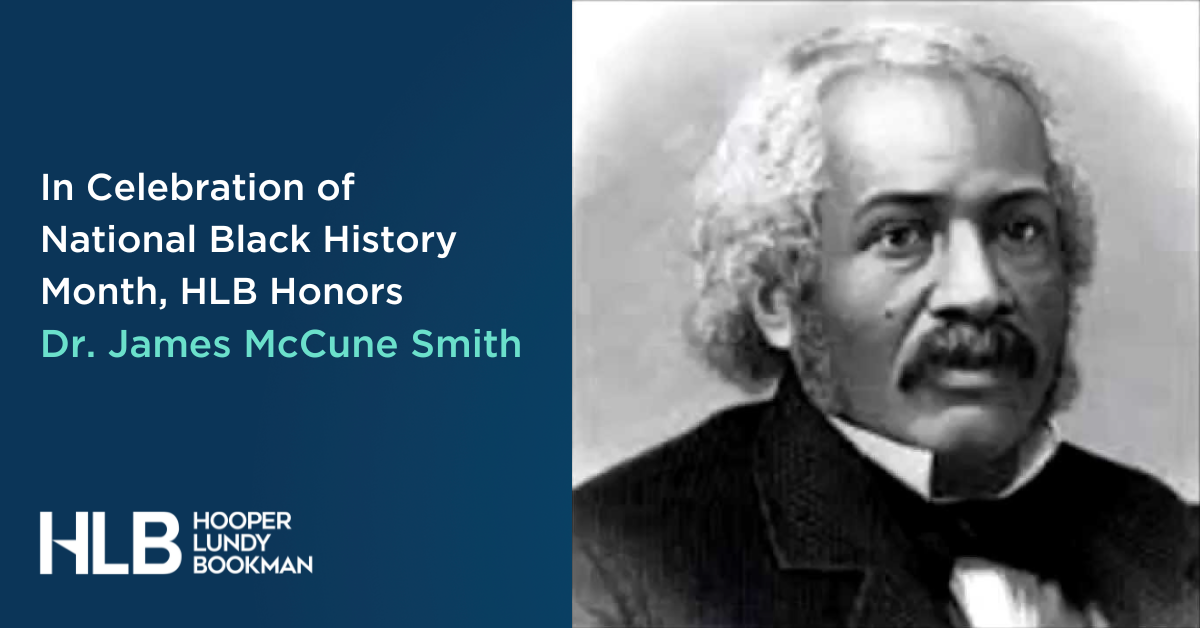
James McCune Smith, M.D. (1813–1865) was the first African American to receive the title “doctor of medicine” and practice medicine in the United States. Born in New York City to a mother who historians believe was brought to the city while enslaved, Dr. Smith went on to become a prominent abolitionist, physician, and writer. He excelled academically while attending the African Free School in New York City, but he was denied admission to Columbia University and Geneva Medical College, as African Americans were barred from medical schools in the United States at that time. At the encouragement of his benefactor, Rev. Peter Williams, Jr., he enrolled at the University of Glasgow in Scotland, where he earned his medical degree in 1837.
Dr. Smith made significant contributions to the field of medicine during his career. He was an advocate for public health and worked tirelessly to improve healthcare access for African Americans. Dr. Smith practiced medicine for over 25 years, primarily at the Colored Orphan Asylum. Dr. Smith also contributed to medical literature, publishing numerous articles on topics such as race and medicine, as well as delivering lectures on these subjects. His work helped challenge prevailing racist theories about African American physiology and health, paving the way for future advancements in medical understanding and treatment. This includes discrediting racial theories based in phrenology and homeopathy, as well as racial theories set out by Thomas Jefferson in “Notes on the State of Virginia.” Additionally, he played a crucial role in establishing the first Black-owned and operated pharmacy in the United States, furthering his impact on healthcare accessibility for marginalized communities by treating patients of all races.
Dr. Smith became a leading figure in the abolitionist movement and an advocate for civil rights. He co-founded the National Council of Colored People with Frederick Douglass. He also wrote the introduction to Douglass’s book, “My Bondage and My Freedom.” He wrote in the introduction that Douglas’s life,
“shows that the worst of our institutions, in its worst aspect, cannot keep down energy, truthfulness, and earnest struggle for the right. It proves the justice and practicability of Immediate Emancipation. It shows that any man in our land, “no matter in what battle his liberty may have been cloven down, * * * * no matter what complexion an Indian or an African sun may have burned upon him,” not only may “stand forth redeemed and disenthralled,” but may also stand up a candidate for the highest suffrage of a great people–the tribute of their honest, hearty admiration.”
As an influential abolitionist and activist, he used his platform to advocate for the rights of African Americans and to fight against slavery.
Dr. Smith’s writings and speeches were instrumental in shaping public opinion on issues of race and equality, including the use of scientific writing and statistics to debunk many myths about slavery and Black people. His dedication to advancing civil rights laid the groundwork for future generations of activists and leaders striving for social justice. Through his multifaceted contributions to medicine, literature, and social reform, Dr. Smith left an indelible mark on American history.
Dr. Smith died on November 17, 1865, of congestive heart failure. He was never granted membership to any of the New York medical societies, nor to the American Medical Association.